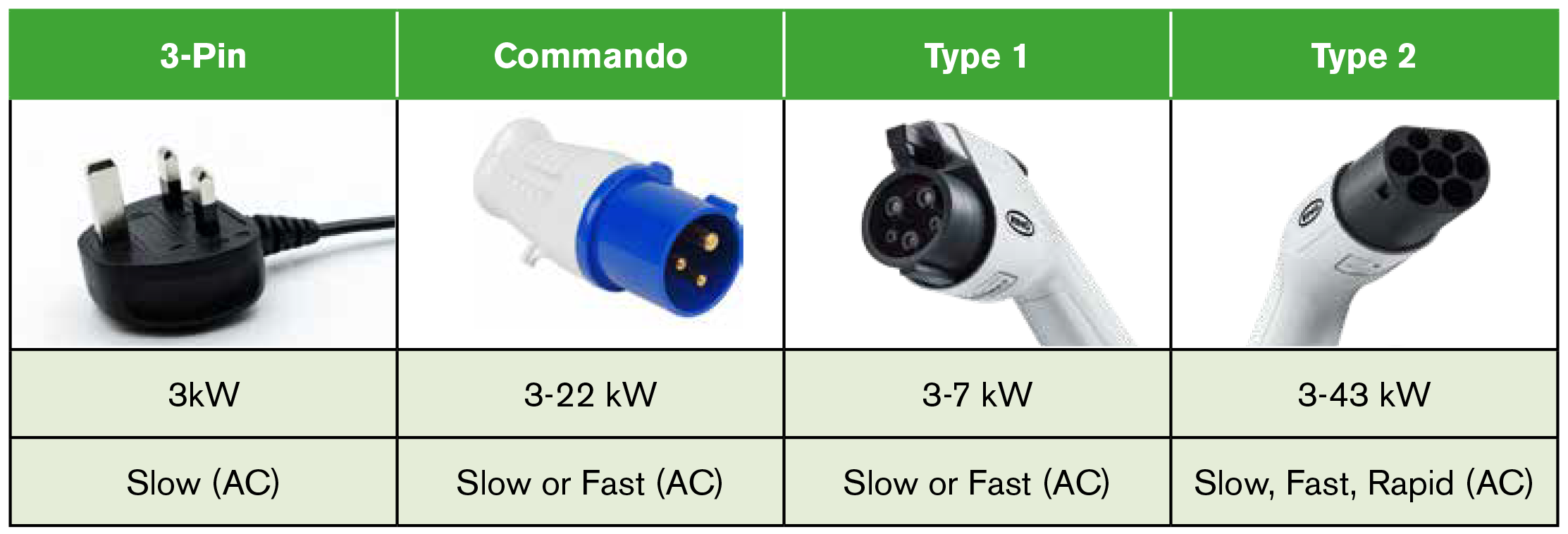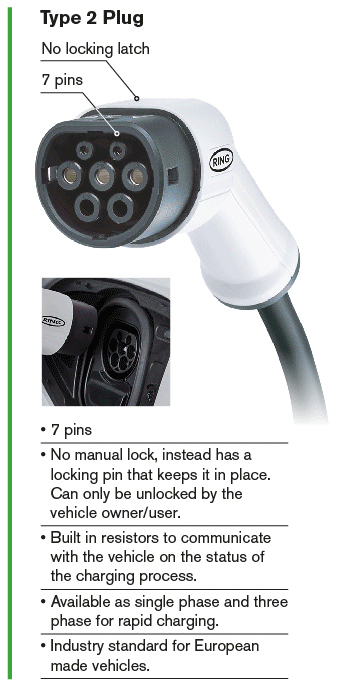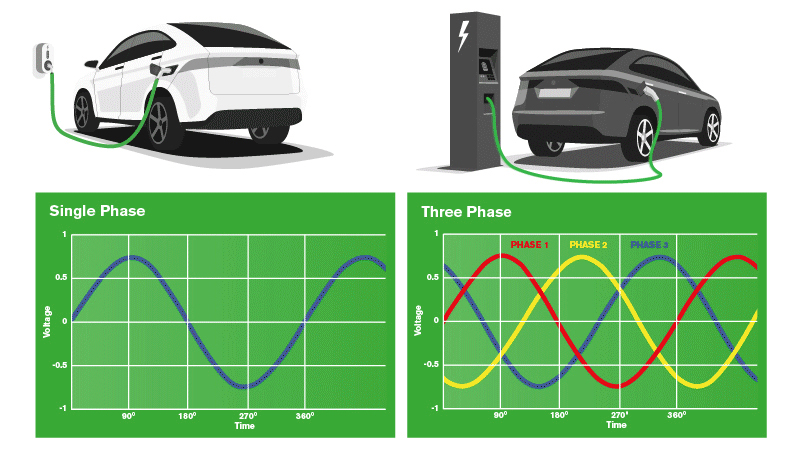You will
have noticed charging points popping up all around the country at service
stations, supermarket car parks and public car parks. The charge points are
either tethered or untethered.
Tethered
units come with charge cables attached making them convenient to use.
Untethered
charge points require the user to provide their own charge cables. As a result
many motorists driving an Electric Vehicle keep a set of charge cables in the boot in case they need to use
an untethered charge point.
EV Charging - how it works
The cable connects to
a charge point and vehicle, which connects a circuit, which allows for a charge
to flow. Once connected, the current will flow from a charge point to the
vehicle and the battery system to charge up the drivetrain batteries. Once they
are full, or the vehicle has enough charge, the cable can be disconnected,
stored, and the vehicle is ready for the road.
As there are different types of Electric Vehicles, there are also different types of Electric Vehicle chargers. The type of charger and connector depends on the vehicle and speed of charging.

Type 1 or Type 2 Charging Cables
Electric vehicle charging cables will have a Type 1 or Type 2 plug and one end that fits the Electric Vehicle or plug-in hybrid's connection point. European charging points all have a Type 2 connection. So even if the EV has a Type 1 connection, the socket that plugs into the charging station/point will be a Type 2 at the other end of the cable.
Ring's new range of EV cables are available as either:


Phases and Ampage
As well as there being two different types of plugs for EV charging, there are also cables which use different Ampage and phases. It is important that EV owners know the details of charging speed, charging cables and charge capacity suitable for their vehicle.
Single phase electricity is the standard in domestic homes supplying 7kW. Three phase is the power supply used in commercial buildings. The cables are thicker (have three cables instead of one) and have the capacity to carry more electricity over a shorter period of time - 22kW, making them 3x faster for charging an EV.

Some cars are just designed to take charge from single phase charging. If the EV has a Type 1 charging connection, it will only work with single phase power supply. The maximum charging speed of electric cars vary. Therefore, before purchasing a three phase charging cable, the car's highest possible charging speed capacity needs to be checked.
Charging at Home
Most Electric Vehicle owners prefer to charge their cars at home. After all, a car is parked at home
for 80% of its time. Charging
points can be installed at home that can deliver faster, more effective charging.
To discover what
charging point you need, visit rightcharge